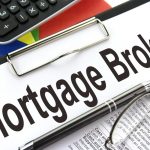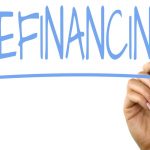Properties in the upper tier may not see a major impact by the changes to Buyer’s Stamp Duty regime as wealthy property buyers are not likely to be deterred by it.

In his Budget Speech yesterday, the Finance Minister introduced higher marginal Buyer Stamp Duty rates for higher-value residential and non-residential properties.
For residential properties, the portion of the value of the property in excess of $1.5 million and up to $3 million will be taxed at 5%, while that in excess of $3 million will be taxed at 6% (up from the current rate of 4%).
The Finance Minister, Lawrence Wong, said that the changes are expected to affect 15% of residential properties.
He also adjusted the Additional Conveyance Duties regime accordingly. For non-residential properties, the portion of the value of the property in excess of $1 million and up to $1.5 million will be taxed at 4%, while that in excess of $1.5 million will be taxed at 5%; up from the current rate of 3%.
He said that the changes of higher marginal Buyer Stamp and the Duty Additional Conveyance Duties regime are expected to affect 60% of nonresidential properties.
The changes to the Buyer’s Stamp Duty regime came into effect for all properties acquired from today (15 Feb).

Minister Wong said that this is expected to generate an additional $500 million in revenue per year. But the actual amount will depend on the state of the property market.
The changes may have some knee-jerk effects said property analysts as property buyers need time to reassess their finances and observe the market reaction.
Based on URA data for 2022, 54.7 per cent of the total private residential transactions were at least S$1.5 million, while 15.4 per cent were at least $3 million. About 39.2 per cent were between S$1.5 million and less than S$3 million.
Orange Tee said that moving forward, about 50 per cent of transactions may be affected by the changes to the Buyer’s Stamp Duty regime if last year’s data was an indication.
“For new home sales, about 71.1 per cent of total transactions in 2022 were at least $1.5 million, while resale was about 46.8 per cent. Therefore, using last year’s data as a proxy and with more than 50 per cent of this year’s new launches in the RCR and CCR, we may expect the changes to affect the new sale market more than the resale market.
“Nevertheless, properties in the upper tier may not see a major impact as wealthy buyers are not likely to be deterred by the additional BSD. Properties with good product attributes and location will continue to draw buying interest. Moreover, properties priced at S$3 million and above tend to have unique attributes or those above S$10 million tend to be rare products, which will continue to attract investor interest.”
Orange Tee
The Buyer’s Stamp Duty regime in Singapore is a tax levied on the purchase of residential and commercial properties. BSD is one of the major sources of revenue for the Singaporean government, and it is designed to promote a stable and sustainable property market by discouraging excessive speculation and keeping property prices under control.
BSD rates are based on the purchase price or market value of the property, whichever is higher. The BSD rates are progressive, meaning that the higher the value of the property, the higher the rate of duty.
There are some exemptions to the BSD regime, such as for properties acquired under certain government schemes or for purchases by Singaporean citizens or permanent residents for their first residential property. In addition, there are some reliefs available to certain buyers, such as married couples purchasing their first property together, who are entitled to a lower BSD rate.
The BSD regime was first introduced in 2011, and it has since undergone several revisions to reflect changing market conditions and policy objectives. The Buyer’s Stamp Duty regime was last changed in 2018, when the rates were increased for buyers who are not Singaporean citizens or permanent residents. This was done in response to concerns about foreign buyers driving up property prices and making it harder for locals to afford housing.
The BSD regime plays an important role in promoting a stable and sustainable property market in Singapore. By discouraging excessive speculation and keeping property prices under control, it helps ensure that property remains accessible and affordable to local buyers.
Mortgage brokers can play an important role in helping buyers understand the Buyer’s Stamp Duty regime and other taxes related to property purchases.
As experts in the mortgage industry, mortgage brokers are well-versed in the various costs associated with purchasing a property, including taxes such as the Buyer’s Stamp Duty. They can help explain to buyers how the BSD is calculated, and how it might impact the overall cost of purchasing a property. They can also advise buyers on any exemptions or reliefs they may be eligible for, as well as any other taxes or fees that may be applicable to their specific situation.
In addition to providing information about taxes, mortgage brokers can also help buyers navigate the complex process of applying for a mortgage loan. They can assist buyers in understanding the various loan options available to them, and help them choose the home loan that best suits their needs and financial situation. Mortgage brokers can also help buyers understand the terms and conditions of the loan, and assist them in preparing the necessary documentation and paperwork for the loan application.
Overall, mortgage brokers can provide valuable assistance to buyers who are seeking to purchase a property in Singapore, by helping them navigate the complex landscape of taxes and mortgage loans. By providing expert advice and guidance, mortgage brokers can help buyers make informed decisions and ensure a smooth and successful property purchase.










